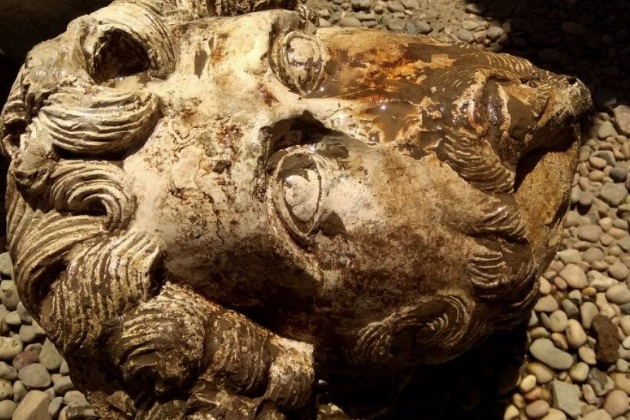
The Egyptian Ministry of Antiquities confirmed that archeologists in the country have discovered a bust of the Roman Emperor Marcus Aurelius in the southern city of Aswan. According to the Ministry, the head of Marcus Aurelius was discovered at the Temple of Kom Ombo. While working on protecting the temple from groundwater, archeologists were stunned to discover the Roman emperor's head.
Apart from the head, archeologists have also unearthed the shrine of god Osiris-Ptah Neb that dates back 25th dynasty at the temples of Karnak in the city of Luxor. Other artifacts discovered from this site include a collection of pottery, part of a stone panel resembling an offering table, and the lower part of a sitting statue.
Ayman Ashmawy, head of the government's Ancient Egyptian Antiquities said that the discovery of shrine is very important considering the location from which it was picked.
"The newly discovered shrine is located to the south of the Temple of Amun-Re, whereas previously discovered shrines had been found only to the east and north of the temple, in line with ancient Egyptian beliefs," said Ayman Ashmawy in a statement.
Ashman Ashmawy said that the head of the Roman emperor is unique, as statues depicting this emperor are very rarely found in Egypt.
Egypt has been announcing the discovery of several antiquities in the past few months, and through this, the country aims to revive its tourism industry which faced set back following the 2011 uprising against Egypt's longtime dictator Hosni Mubarak. The government believes that discoveries like these will attract historians and other travellers who love to witness the glory of ancient kingdoms.
Marcus Aurelius was the Roman emperor from 161 to 180, and he ruled the country jointly with his adoptive brother Lucius Verus, until the latter's death in 169. Aurelius is widely considered the last of the so-called Five Good Emperors; Nerva, Trajan, Hadrian, and Antoninus Pius are the other four.









